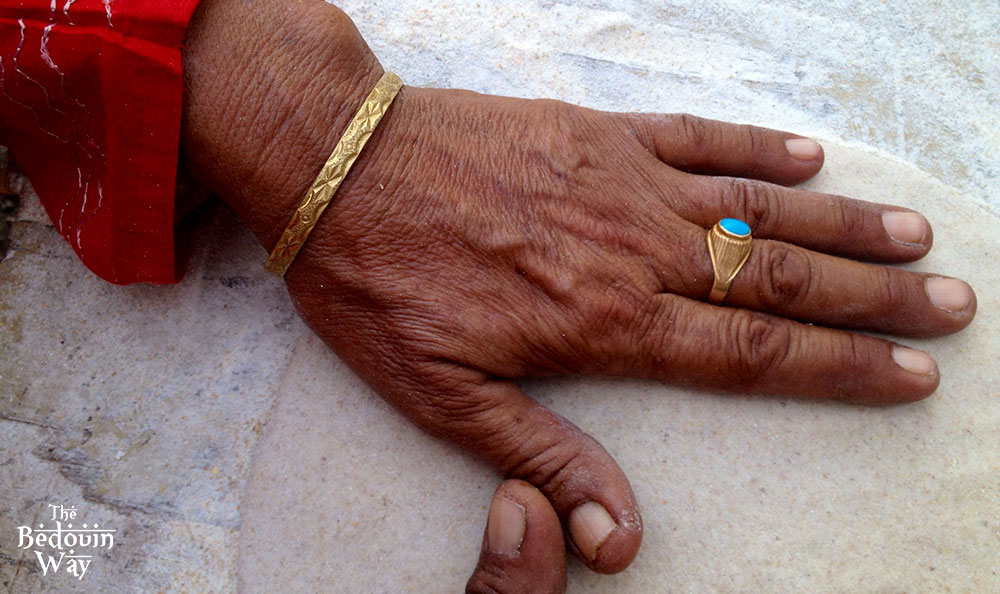Many women everywhere have the same hopes and dreams. To marry a good man, live in a nice house and go on to have beautiful children.
But there is much mystery surrounding the life of Bedouin women as they are rarely seen in public. With a deep-rooted history of honour and tradition, most are required to stay within the home, take care of the house and look after their family.
In return, we Bedouin men place our women in very high regard, calling them our "Queens". In the Muslim religion, we believe that men and women are created from one soul to be partners to each other. Men and women have the same religious responsibilities, and we hope both will receive the same rewards on the day of judgment.
As sons, brothers, husbands and fathers we have a duty to give the women in our lives a comfortable home, love, protection, security, food, clothing and warmth. Therefore women take pride of place in the home and usually want for nothing.
The roles in a Bedouin marriage are clearly defined. The husband works to bring money for the family to live. The wife cleans, keeps the house and garden tidy, looks after the animals, cooks, brings up the children and makes sure there is always a welcoming fire for guests. She works very hard to make sure that she does a good job for her family.
Bedouin women usually marry another Bedouin, although if a foreign man who is a good Muslim and a decent person asks the family for a woman's hand in marriage, sometimes this is allowed in our culture.
In the past, it was the parents who chose the husband for their daughter as with either a very nomadic lifestyle or a daughter who never left the home, it was unlikely that she would be able to meet any men herself.
Now Bedouin marriages tend to be based around love or at least a mutual respect for each other that could grow into something more.
The men and women who are looking to marry always listen to what other people in the community say about their potential partner. Reputation is everything and we need to know that the person we spend our life with is admired and respected.
We will discuss Bedouin weddings in more detail in next week's blog.
Bedouin women cover their bodies with long traditional dresses called galabaya. These are usually brightly coloured and patterned. They also cover their hair (and sometimes their face) with a headscarf. This is because of our Islamic faith and also in our culture no man should look to any part of a woman's body, out of respect. The only man who should see her body is her husband. In turn, traditionally Bedouin men also wear long white galabaya and a headscarf.
In every culture there are successful marriages, and ones that don't work out. The Bedouin are no different, and within a marriage each person has their right to be treated fairly according Bedouin Law and our code of ethics.
Please note that there really is no typical Bedouin woman. Her life will depend on her tribe, her family, who she marries, and whether she lives in the city, desert or in a coastal or tourist area. She could live in Sinai or other parts of Egypt and this will make a difference to her life. Some women are able to work, and others are not. Some women leave the home daily and others prefer or are expected not to leave it at all.
Copyright © 2014, The Bedouin Way. All rights reserved.

